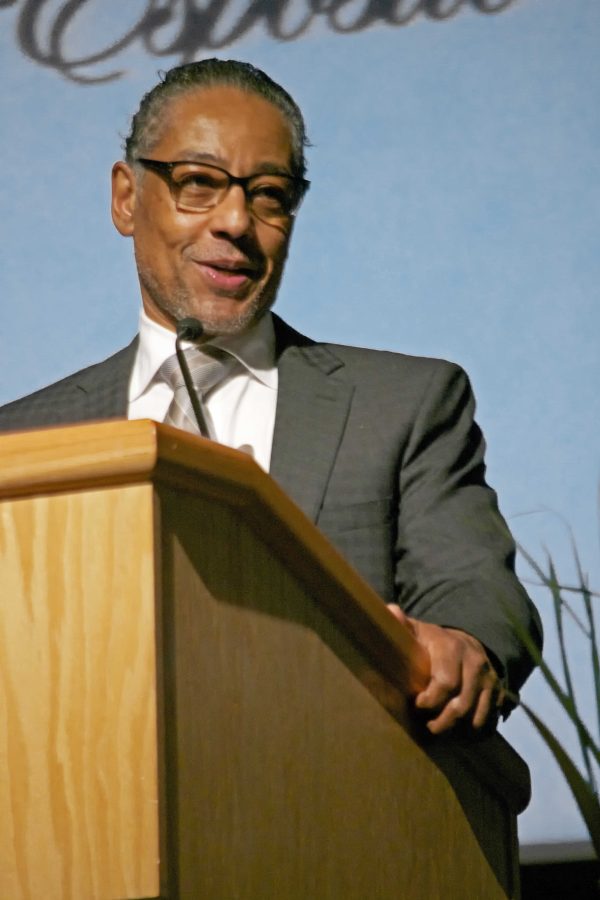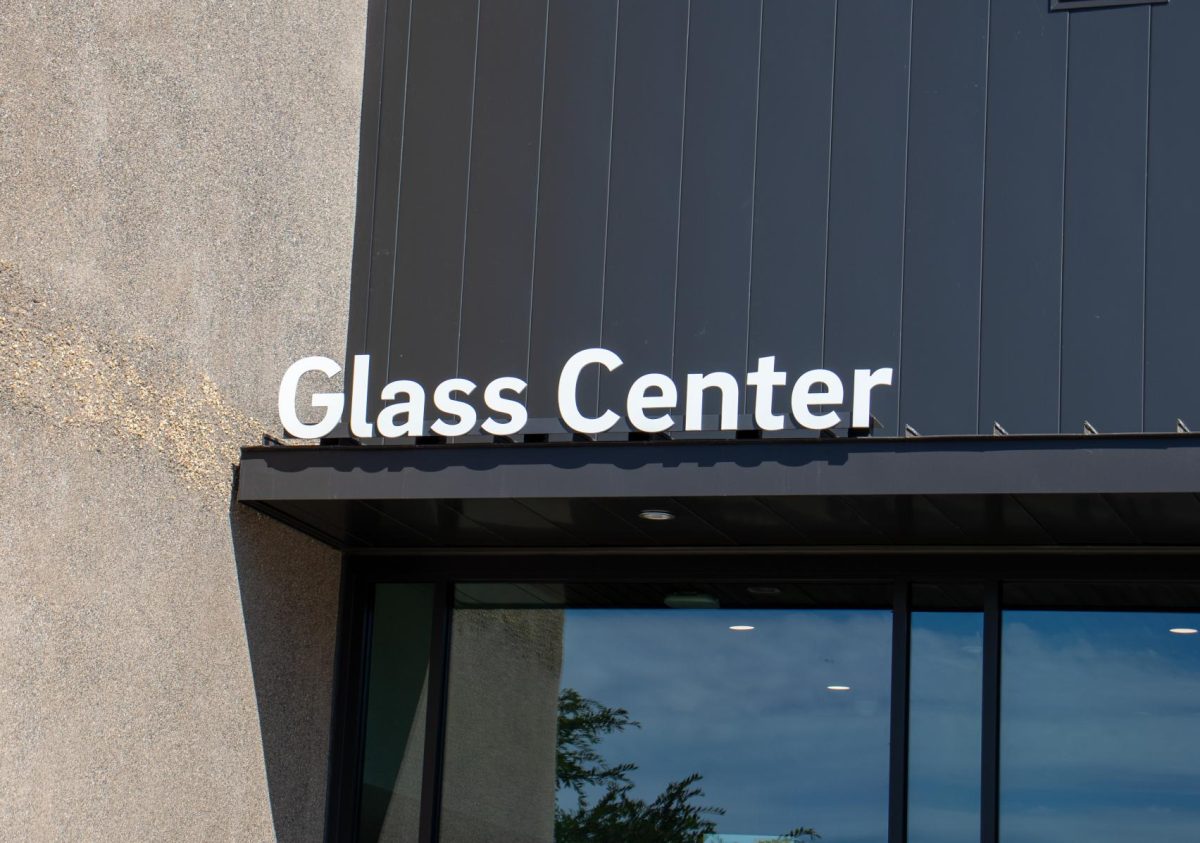
Just 28 days later, Black History Month has encouraged all those who participated in the campuswide events to carry February’s message throughout the year, and everyone received a final spark of inspiration from Emmy-nominated actor and keynote speaker Giancarlo Esposito.
Taking place in Price Center Ballroom West, with an array of staff, students and faculty trickling into the silent auction and the trace smells of seasoned home fries and collard greens permeating the room, the 13th Annual Black History Month Scholarship Brunch made it easy to feel in the present. To be fully present, however, is to understand why everyone has gathered for this special occasion, bidding on anything from children’s beach-play sets and exclusive hotel stays to hand-crocheted blankets and date-night baskets. To have been fully present was to look at Black History Month holistically, and what all the buzz was really about.
For students, Black History Month means a number of things.
“It’s important to be part of Black History Month events. It’s for us and [is] the one time that it’s celebrated to be black,” Revelle College sophomore Andre Thompson said.
“What students can appreciate and learn about is a culture that we may not have lived through,” Muir College junior Jessy Nguyen said.
“Black History Month is about remembering and learning and spreading awareness,” Revelle graduate student Matt Sasaki said.
Chancellor Khosla spoke about the importance of Black History Month, scholarships for underrepresented minorities and trying to raise enough money to have students meeting financial aid criteria and being able to graduate from UCSD without loans. The installments of two art pieces this month — the statue of Sojourner Truth, located in Thurgood Marshall College, by UCSD alumna Manuelita Brown and the Black Legacy Mural in Price Center East by San Diego artist Andrea Rushing — further pushed Khosla’s vision of an inclusive campus.
“These pieces of art are meant to celebrate the accomplishments of African-Americans,” said Khosla. “They are meant to educate us as we walk by the campus day in and day out. We need to be able to see art, and we need to see that it represents every one of us. Every piece of art … we need to be able to see ourselves in and know that we belong. My goal is that we can make this campus completely inclusive and very diverse.”
The two UJIMA Network Black History Month Scholarship recipients, whom the brunch was centrally focused on, continued the remarks of why this event was important.
“Black is beautiful,” scholarship recipient Dante Paul said. “It’s art. It’s resistance. It’s power. It’s resilience. It’s excellence, not always perfect, but truly inspiring.”
“Black history doesn’t have to be an academic text,” scholarship recipient Kiana Wickliffe added. “My study of black history is not, and never will be, limited to the month of February. What began as an exploration to further my understanding of black culture has resulted in me receiving this scholarship and I am truly grateful. Thank you all for being part of this journey, as I continue to learn about black history, my history, our history.”
To rounds of applause, the scholarship winners left the stage for Esposito. Well known for his roles as Gus Fring in “Breaking Bad” and currently Tom Neville in “Revolution,” Esposito has bypassed what made him famous to find what makes us all connected.
“What is the only thing that really matters and brings us through? It’s love,” said Esposito. “We can see it in each other’s eyes. We can feel it in each other’s words and feel it emanating through our hearts. But love is action. It allows us to move forward with our humanity in acknowledging that we are one with the world and ourselves.”
The scholarship, Esposito acknowledged, represents the sacrifice of one’s desire in life because it is giving up one’s wants for a greater good. Inspiration is created thereafter and changing people’s lives is the end result.
Esposito brought a holistic take on giving and interconnectivity to the scholarship and the brunch and what he said encompasses his larger work of unofficial “Giancarloisms.”
“It is less about an end, the means to an end, the end to a story and more about the journey,” said Esposito. “If you’re present, that’s what your life becomes. It becomes a sharing. It becomes a give and take relationship with the universe around you, and it becomes a listening. Listening to others’ stories, allowing them to hear yours, coming from your heart, at all times.”
The spirituality that Esposito embodied resonated throughout the room, and he continuously brought his keynote speech back to how people’s actions not only affect themselves, but everyone as a whole. Black History Month takes all of the inspired young students, all of the campus organizers and participants and connects them along a common vein.
“We are 90 percent water,” said Esposito. “We are electrical beings who have a spark. And our spark ignites other people’s sparks. And the spark of what we know and what we’ve learned and what we’re prepared to give and share to all the young students in the room and to each other … everything [we] need to know is inside of [us].”
It is this spark that Esposito carried into the room, electrifying the audience and reminding us all that Black History Month need not end 28 days later, but should be carried in all of us and passed on to others.













